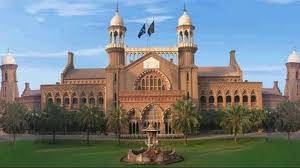LAHORE - Justice Sayyed Mazahar Ali Akbar Naqvi of the Lahore High Court on Friday expressed serious concerns over non-submission of reply in petition against Pakistan (Amended) Seed Act 2015, warning that Plant Breeders Rights registry would be restrained from functioning if the parawise comments were not filed on the next hearing.
Justice Naqvi gave these remarks while hearing the petition moved by Human Voice, a local non-government organization seeking protection of the farmers’ rights.
On last hearing, Justice Naqvi sought copy of the resolution passed by Punjab Assembly, with directives to the federal government to submit parawise comments. However, neither the copy of the resolution was filed nor parawise comments were submitted.
Advocate Sheraz Zaka contended that the impugned Seed Act was passed without the approval of the cabinet and under Article 144 of the Constitution, the amendment made in seed act could not have been passed by the federal legislature as it is a provincial subject. He argued that the Act deprived the farmers of their traditional farming practices and instead the multinational corporations had been accommodated to protect their genetically breeding practices which was contagious to the environment, anti competitive harmful for the national economy.
He said the impugned seed act had been passed without the approval of cabinet and under article 144 of the Constitution the amendment made in seedact could not have been passed by the federal legislature as it is a provincial subject.
The counsel contended that the law had been passed depriving the farmers of their traditional farming practices and instead the multinational corporations had been accomodated to protect their genetically breeding practices which was contagious to the environment,anti competitive harmful for the national economy.
He further argued that neither Khyber Pakhtunkhawa Assembly nor any other assembly passed such resolution and in such a situation the parliament could not pass the bill without such resolutions from the provinces.
The counsel said the scope of his petition was wide and requires the attention of the court keeping into consideration the federal government had ratified convention on biological diversity but the federal government had not heeded attention to the protection of traditional breeding practices.
He said under the impugned law, farmers would be fined and imprisoned for preserving, selling and exchanging seeds, a tradition that had been in vogue for centuries. He had said that it would badly affect the local farmers who were procuring and using the seed according to our soil.
He said that the impugned law had made it mandatory for farmers to buy seeds from a licensed company or its agent and they had to do so every time they cultivate a new crop. He stated that this rectriction would create a monopoly of companies and make farmers dependent on multinational corporations.
He said that it was injustice to millions of small and landless farmers whose food insecurity would be aggravated by this law. He submitted that conditions required under the impugned Act would lead to increase in prices of agricultural products and a food security threat in future is likely to happen.
He had also said that the experience of growing genetically modified (GM) crops, like Bt cotton, has been disastrous in the country and the government unfortunately indented to promote them through this law is unfortunate. He had said that many European countries had already banned genetically modified crops because of their severe adverse impact on environment and Pakistan should also do the same.
He had asserted that this law was not acceptable as first presented before Khyber Pakhtunkhwa Assembly and later in Punjab but the government had to face strong resistance from farmers from both provinces.






